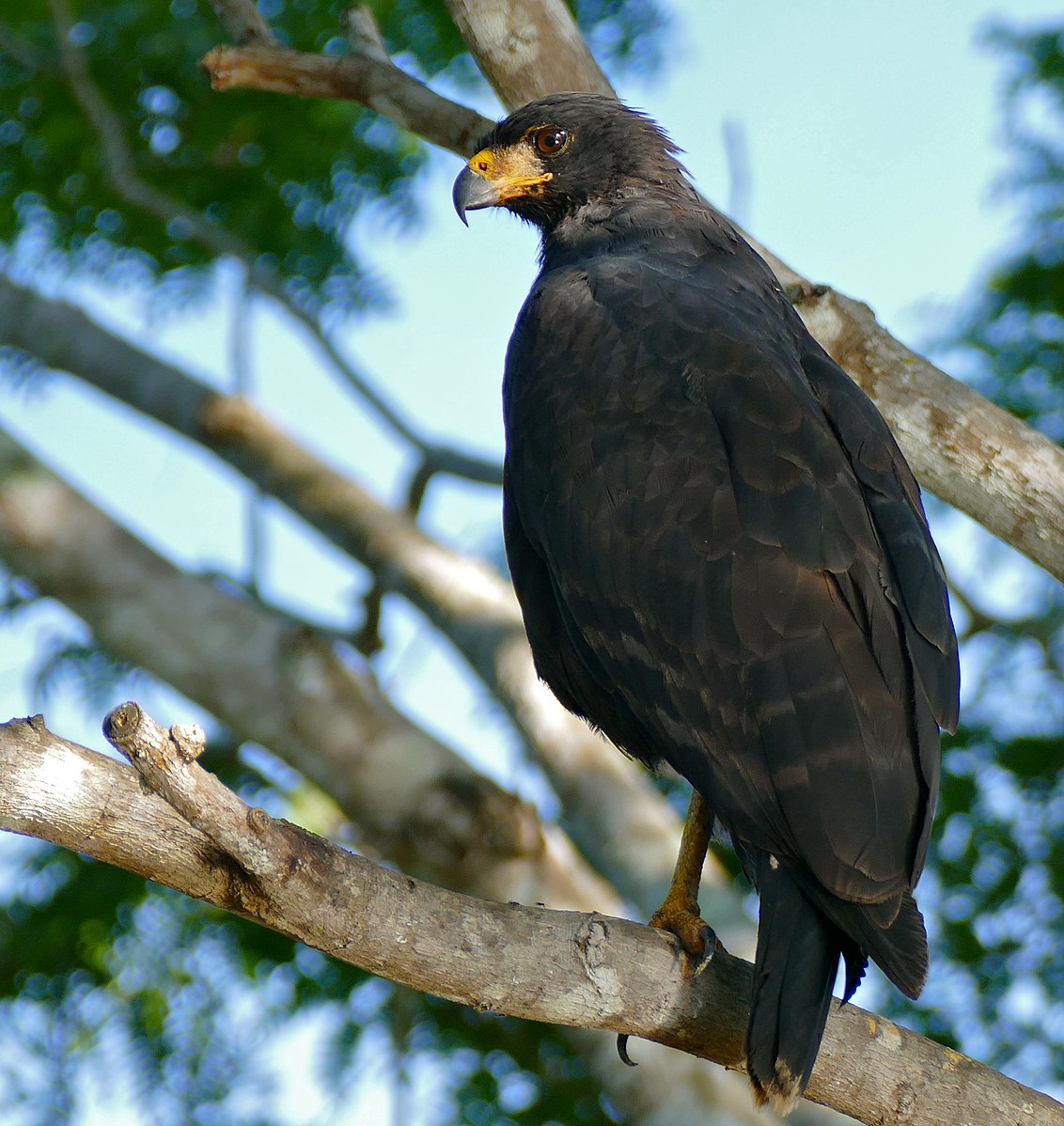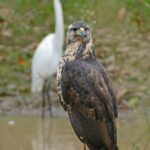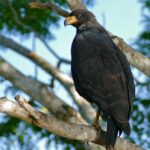Great black hawks, also known as Buteogallus urubitinga, are large birds of prey found in the Americas. While these powerful raptors are capable hunters, the likelihood of them attacking dogs is relatively low. Let’s explore the details surrounding this topic.
Hunting Capabilities of Great Black Hawks
Great black hawks are impressive predators with a wingspan of up to 4.5 feet. They are known for their strong flight and hunting skills, primarily targeting small to medium-sized prey such as rodents, reptiles, and small birds. Their sharp talons and hooked beaks make them well-equipped to capture and tear apart their prey.
Prey Preferences of Great Black Hawks
 Image source: Great Black Hawk by Bernard DUPONT
Image source: Great Black Hawk by Bernard DUPONT
Great black hawks are not naturally inclined to view dogs as prey. Their typical diet consists of small mammals, birds, and reptiles that are more in line with their hunting instincts and capabilities. While they may occasionally mistake a small dog for a potential food source, they generally do not consider dogs to be a primary target.
Challenges in Attacking Dogs
Even if a great black hawk were to attempt an attack on a dog, it would face significant challenges. The size and strength of most dogs, even small breeds, can be a deterrent for these birds of prey. Larger dogs, in particular, would be difficult for a great black hawk to overpower and carry away.
Factors Influencing Potential Attacks
There are a few factors that could increase the likelihood of a great black hawk attempting to attack a dog:
- Size of the Dog: Smaller dogs, especially those under 2 pounds, may be more vulnerable to potential attacks, as they could be mistaken for natural prey.
- Perceived Threat: If a great black hawk feels threatened by a dog, it may resort to defensive measures, including an attack, to protect itself or its nest.
- Availability of Preferred Prey: If the great black hawk’s natural prey is scarce, it may be more inclined to explore alternative food sources, including small dogs.
Protecting Your Dog from Great Black Hawks
While the chances of a great black hawk attacking a dog are relatively low, it’s still important to take precautions to keep your canine companion safe:
- Supervise Small Dogs: Keep a close eye on small dogs when they are outside, especially in areas where great black hawks are known to be present.
- Use Leashes: Keep your dog on a leash when in open areas to prevent them from wandering too far and potentially attracting the attention of a hawk.
- Provide Shelter: Ensure your dog has access to secure, covered areas where they can retreat if a hawk is spotted nearby.
- Educate Yourself: Learn about the behavior and habitat of great black hawks in your local area to better understand the potential risks and take appropriate precautions.
In conclusion, while great black hawks are impressive birds of prey, the likelihood of them attacking dogs is relatively low. By understanding the hunting capabilities and prey preferences of these raptors, as well as taking practical steps to protect your canine companion, you can help ensure the safety of your furry friend.
References:
– Whole Dog Journal: Even Large Hawks Such as This Red-Tailed Hawk Would Have a Difficult Time Carrying Away Any but the Tiniest Dogs, Those Less Than Two Pounds
– The Wildest: Protect Your Dog from Hawks and Other Birds of Prey
– Cool Green Science: Do Hawks Eat Pets?


